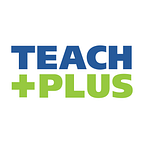Turning High-Quality Instructional Materials into High-Quality Instructional Experiences
By Mollie Wright
Adam’s head was down. “Miss, I don’t read!” It was the final period of the school day at the end of a long week in which Adam had taken both this year’s English II STAAR exam and the English I exam he had failed the previous year. Understandably, he was exhausted.
Book Clubs began that day, with students selecting a YA novel to read in small groups. The choices ranged from Elizabeth Acevedo’s The Poet X to George Owell’s 1984. Rather than rote test-prep, this final unit of the year would challenge students’ reading stamina across whole books, letting them choose their discussion questions and creative final projects.
Since 2023, Texas’ House Bill 1605 has put in place a system of rubrics and reviews to define High-Quality Instructional Materials (HQIM). The ultimate goal of this legislation is to help busy teachers like me locate excellent teaching resources. My TEKS-aligned Book Club unit, built by the curriculum team at my district, is an exciting example of such HQIM. As written, the unit provides lessons and activities on character, plot, conflict, and theme. The curriculum saves me valuable lesson-creation time and helps my students move beyond basic testing skills toward high-order thinking skills.
However, for these excellent HQIM lessons to succeed with reluctant readers like Adam, we need two additional key ingredients: teacher agency and time to truly understand the materials. As Texas invests in making HQIM more accessible to all our educators, it’s important to remember that teachers need time to internalize the HQIM curricula, and we need trust from our campus and district administrators to make adjustments for our specific students. With enough time and autonomy, teachers like me can build on HQIM to create the real goal of the classroom: HQIE — High-Quality Instructional Experiences.
Luckily for Adam and his classmates, our HQIE that day was an in-class Book Tasting, a modification I added to the unit curriculum to build curiosity and enthusiasm. All our texts were laid out on the desks, and students walked around the room to sample each book. Like at Costco, sampling meant wandering through the aisles taking a little bite of each option — reading the front and back covers and at least a few paragraphs of chapter one — to see if you might like the whole thing. Book Tastings pique students’ curiosities and are inherently social; curiosity and socializing are major motivators for teen readers, and student buy-in is a key component of HQIE.
I picked up Adam’s notebook and handed him the closest book to his seat, Speak by Laurie Halse Anderson. We read the first few sentences together, and I asked him how he’d rank it out of 10. He wasn’t particularly drawn in by the protagonist’s description of her first day of high school, so he ranked it a 1/10. When he realized he was allowed to have whatever opinion he wanted about the book — getting to judge the reading rather than feeling judged by it — he opened up to the process.
Adam rated a few more titles, moving through the room with a friend, investigating his options independently and jotting down what he found interesting about this book versus that. He ended the class period with several 10/10 choices to submit for his Book Preferences exit ticket, and he ultimately selected the dystopian sci-fi adventure novel Scythe by Neal Shusterman.
Because of the district’s HQIM lesson guides along with my skills and time to tweak and modify where I saw fit, Adam persevered through to the end of the unit. He read independently. He offered his opinions in the discussion, contrasting the world of the book to our own and drawing on evidence from the novel and his own life to support his opinion on which would be a better place to live. In short, he became a stronger reader.
Students like Adam have taught me that even the best HQIM curriculum can feel boring and frustrating when I don’t take care to make the learning individualized and relevant. Teachers’ time and freedom to build on students’ interests, social skills, and intrinsic motivation can make learning feel interesting, engaging, and fun. Let us transform High-Quality Instructional Materials into High-Quality Instructional Experiences so that our students learn more, get smarter, and increase their skills in ways that lift them up rather than bog them down.
Mollie Wright teaches English at Garland High School in Garland and is a 2024–2025 Teach Plus Texas Policy Fellow.
